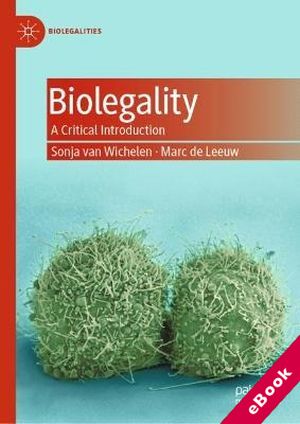
The device(s) you use to access the eBook content must be authorized with an Adobe ID before you download the product otherwise it will fail to register correctly.
For further information see https://www.wildy.com/ebook-formats
Once the order is confirmed an automated e-mail will be sent to you to allow you to download the eBook.
All eBooks are supplied firm sale and cannot be returned. If you believe there is a fault with your eBook then contact us on ebooks@wildy.com and we will help in resolving the issue. This does not affect your statutory rights.
This book provides a comprehensive analysis of the empirical and theoretical problems posed by the encounter between law and biology in the twenty-first century. How does biotechnology and new bioscientific knowledge affect our legal institutions, our sense of justice, and our ways of relating to one another?
To answer these questions, authors Marc de Leeuw and Sonja van Wichelen examine the complex and often contested ways in which biotechnology and biological knowledge are reworked by, with, and against legal knowledge. As this book shows, recent developments in the life sciences-including molecular biology, immunology, and the neurosciences-and their applications in forensics, medicine, and agriculture test longstanding legal forms, such as property, personhood, parenthood, and (collective) identity, ultimately constituting the current field of "biolegality." The authors argue that these biolegal contestations represent philosophical and anthropological challenges to existing understandings of exchange, self, kinship, and community.
By addressing how biology and law inform new ways of relating and knowing, the book proposes a programmatic intervention, asserting the pivotal role the study of biolegality plays in advancing social and political theory.